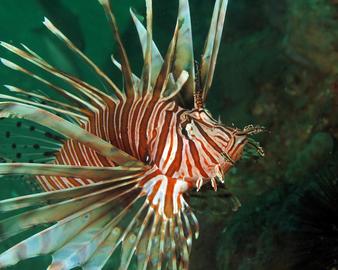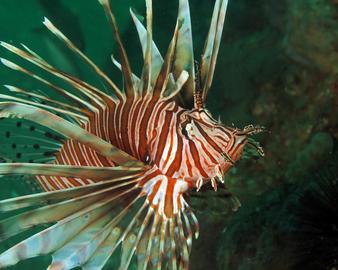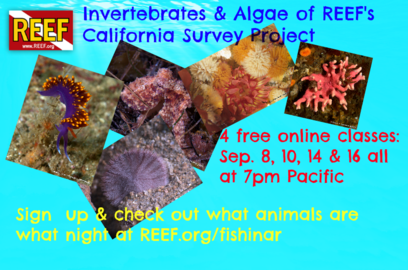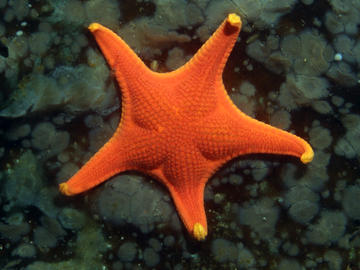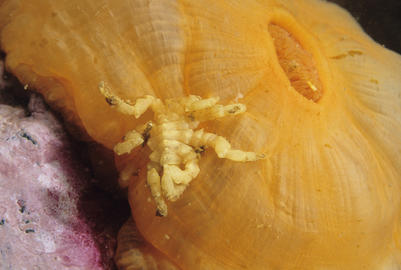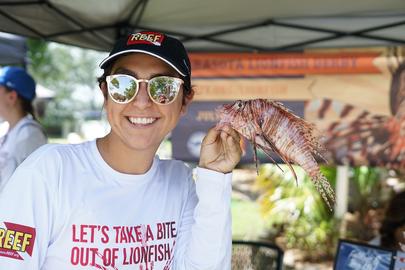Join REEF staff Dr. Alli Candelmo for an update on current research findings of the invasive lionfish in the Tropical Western Atlantic.
Join REEF staff Dr. Alli Candelmo for an update on current research findings of the invasive lionfish in the Tropical Western Atlantic.
[Originally scheduled for Wednesday, December 4th, 2019, but rescheduled due to Presenter illness]
Reef Environmental Education Foundation is excited to announce an opportunity to partner with classroom teachers for the 2023-2024 school year. Thanks to the Coastal Partnership Initiative (CPI) grant from the Florida Department of Environmental Protection, we can offer your class FREE REEF Virtual Field Trips, Colorful Fish Identification Cards for your students, and marine life curriculum for you to use as a classroom resource.
California Invertebrates 4 (Bryozoans, Tunicates, Algae)
Species taught in this session are:
- Fluted Bryozoan
- Lacy Bryozoan
- Northern Staghorn Bryozoan
- Southern Staghorn Bryozoan
- Light-bulb Tunicate
- Stalked Tunicate
- Club Tunicate (invasive)
- Bull Kelp
- Giant Kelp
- Northern Sea Palm
- Southern Sea Palm
- Oarweed
- Asian Kelp Wakame (invasive)
Join Janna Nichols and Ellie Place on the final of a four part series on how to find and identify the invertebrates you can see on your dives in the Pacific Northwest. This is a great introductory course, as well as a review for more experienced surveyors. All are welcome!
Echinodermata:
This Fishinar session covers the following invertebrates, as well as an introduction to the new Marine Life of the North Atlantic app.
- Atlantic Rock Crab
- Blue Crab
- Atlantic Horseshoe Crab
- Anemone Sea Spider
- Northern Cerianthid
- Northern Red Anemone
- Finger Sponge
- Eelgrass
- Sea Vase
- Invasive Didemnum Tunicate
- Wrinkled Whelk
- Orange-footed Cucumber
- Northern Sea Star
Learn all about the invasive lionfish during this free, online workshop. Topics include background of the invasion, lionfish biology, ecological impacts, current research, and safe collecting and handling techniques.
A fish as beautiful as it is destructive; invasive lionfish have had dramatic impacts on marine ecosystems due to their high reproductive rate and voracious appetites. These visually stunning fish have characteristic red and white stripes and long, fanlike spines and fins.

